SUMMARY
This is AI generated summarization, which may have errors. For context, always refer to the full article.
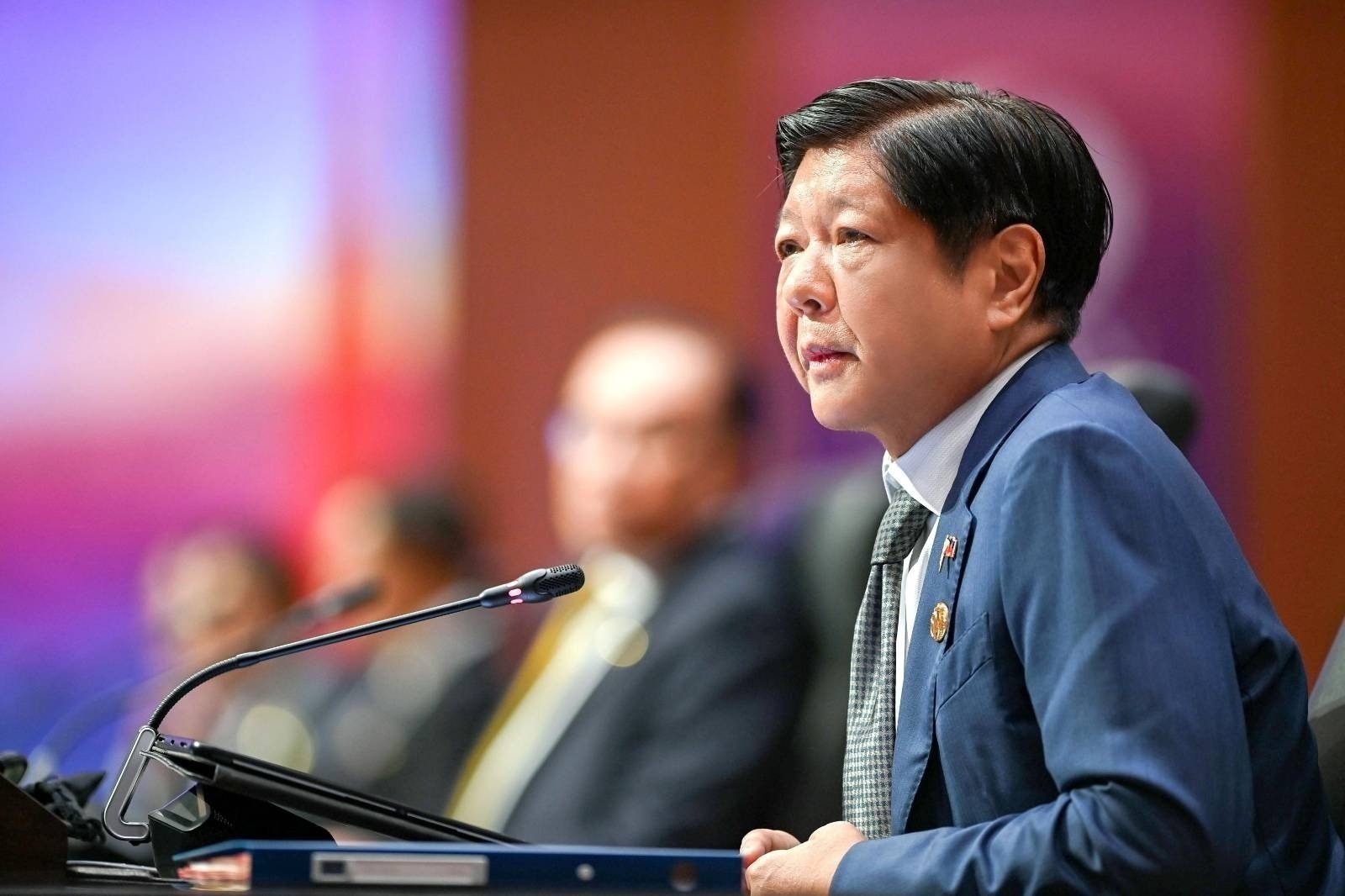
JAKARTA, Indonesia – Philippine President Ferdinand Marcos Jr. on Thursday, September 7, urged the Association of Southeast Asian Nations (ASEAN) and its allies to stand against the “dangerous use of coast guard and maritime militia vessels in the South China Sea.”
Marcos, who was speaking at the 18th East Asia Summit (EAS) attended by Chinese Premier Li Qiang, did not specify the nation involved but he was obviously referring to China which, in the past month, had stepped up its aggression against the Philippines in the body of water that the Asian giant claims in its entirety.
“The Philippines fully supports adherence to international law and the rules-based order. We must oppose the dangerous use of coast guard and maritime militia vessels in the South China Sea,” he said in his intervention.
“We are concerned over illegal, unreported, and unregulated (IUU) fishing, and the militarization of reclaimed features in the South China Sea,” added Marcos.
Manila has been witness – and many times, victim – to China’s unabashed claim of the entire South China Sea. The Chinese Coast Guard and maritime militia has repeatedly attempted to block Philippine Coast Guard vessels patrolling the West Philippine Sea, or part of the South China Sea within Philippine territory.
In August, Chinese vessels harassed, blocked, and used water cannons against Philippine Coast Guard and military-commissioned ships en route to a resupply mission in Ayungin Shoal. Later that month, the Philippines also rejected China’s “Standard Map” that depicted Philippine territory as within its boundaries in the South China Sea.
“The Philippines remains resolute towards the peaceful resolution of disputes. We continue to support freedom of navigation and overflight, and the rules-based international order in the South China Sea,” Marcos said in his intervention at the EAS.
The EAS gathers ASEAN nations and their dialogue partners with sometimes contradicting priorities and agenda.
Aside from ASEAN members Indonesia, Laos, Malaysia, the Philippines, Singapore, Thailand, Vietnam, Brunei, Cambodia, and chairperson Indonesia, the EASincludes Australia, China, India, Japan, New Zealand, the Republic of Korea, Russia, and the United States.
Myanmar, an ASEAN member, has not been invited to in-person summits since a military coup ousted the civilian government in February 2021.
Manila’s allies
Vice President Kamala Harris, who represented the United States at the Jakarta summit, had a bilateral meeting with Marcos on Wednesday, September 6.
Marcos, Harris, and Japanese Prime Minister Kishida Fumio also met informally during the ASEAN Gala Dinner also on September 6.
The three leaders, according to a readout from the Japanese Ministry of Foreign Affairs, agreed to “jointly tackle unilateral attempts to change the status quo by force” in the South China Sea.
“Prime Minister Kishida, President Marcos and Vice President Harris confirmed that the three countries would continue to promote the further strengthening of coordination among Japan, the US, and the Philippines in various ways,” Japan said.
China’s sweeping claim of and aggressive actions in the South China Sea have been a major talk point in the ASEAN Summit, with leaders calling for the rule of international law in the vital area.
ASEAN and the South China Sea
To open the East Asia Summit, ASEAN chairperson Indonesian President Joko Widodo told leaders they had an “equally enormous responsibility to create peace, stability and prosperity in the region.”
“We have a shared responsibility to not create new conflicts to not create new tensions,” he added.
The ASEAN’s Chairman’s statement on the South China Sea, released on September 5, only reaffirmed the need to follow international law and to foster mutual trust and confidence among countries.
Manila was recently host to another round of negotiations between ASEAN and China on the Code of Conduct in the South China Sea. Marcos said that “progress was made” in these talks, which started over a decade ago. – Rappler.com
1 comment
How does this make you feel?
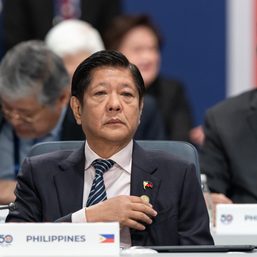
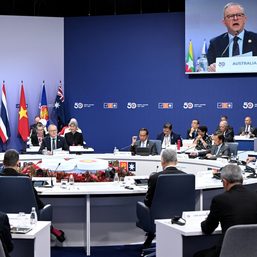
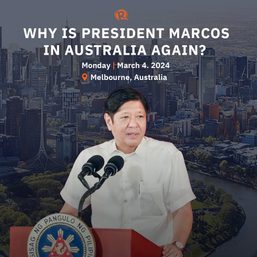
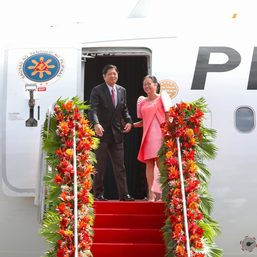
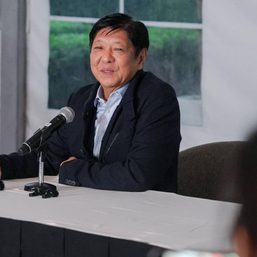
![[EDITORIAL] Diplomasya ni Rodrigo Duterte sa Tsina: Nakaluhod nang dikit ang noo sa lupa](https://www.rappler.com/tachyon/2024/05/animated-duterte-china-panatag-shoal-carousel.jpg?resize=257%2C257&crop_strategy=attention)
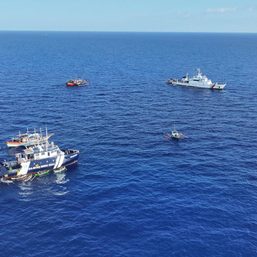
![[Newspoint] Willful indifference](https://www.rappler.com/tachyon/2024/05/np-willful-indifference-05032024.jpg?resize=257%2C257&crop=270px%2C0px%2C720px%2C720px)
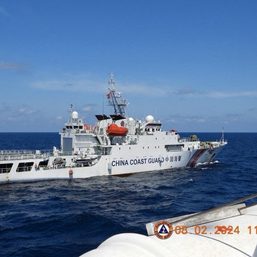
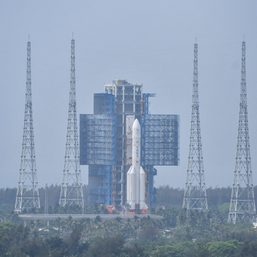
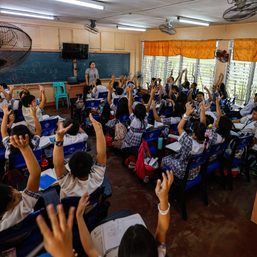
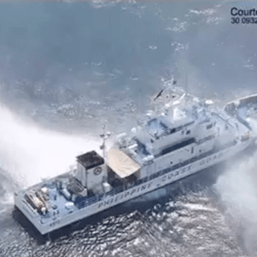
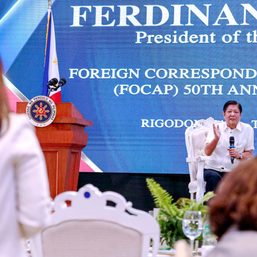
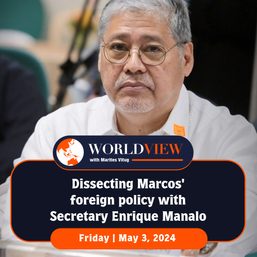
![[OPINION] Red-tagging is so yesterday. Welcome to the era of Liza-tagging](https://www.rappler.com/tachyon/2024/05/tl-liza-tagging-05022024.jpg?resize=257%2C257&crop_strategy=attention)
At least President Marcos Jr. had the courage to express what is truly happening in the West Philippine Sea. But why is it that he cannot specifically pinpoint the Bully Nation? It is like the case of a student who was bullied by his classmate. He described the Bully: tall, with strong muscles, skilled in Kung Fu, etc. but just could not or would not give the name of the actual Bully. Is this mere courage but short of bravery? Or just 50% courage?